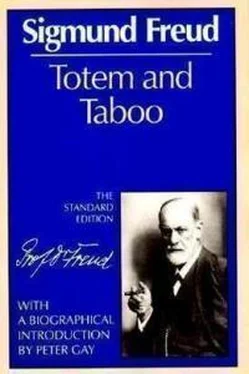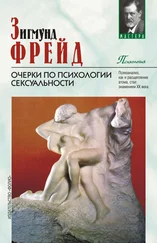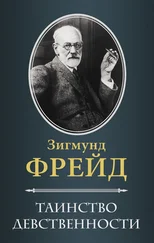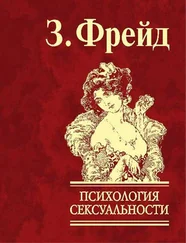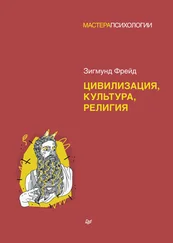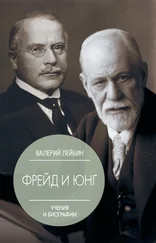Зигмунд Фрейд - Totem and Taboo
Здесь есть возможность читать онлайн «Зигмунд Фрейд - Totem and Taboo» весь текст электронной книги совершенно бесплатно (целиком полную версию без сокращений). В некоторых случаях можно слушать аудио, скачать через торрент в формате fb2 и присутствует краткое содержание. Год выпуска: 2014, Издательство: epubBooks Classics, Жанр: Психология, на английском языке. Описание произведения, (предисловие) а так же отзывы посетителей доступны на портале библиотеки ЛибКат.
- Название:Totem and Taboo
- Автор:
- Издательство:epubBooks Classics
- Жанр:
- Год:2014
- ISBN:нет данных
- Рейтинг книги:3 / 5. Голосов: 1
-
Избранное:Добавить в избранное
- Отзывы:
-
Ваша оценка:
- 60
- 1
- 2
- 3
- 4
- 5
Totem and Taboo: краткое содержание, описание и аннотация
Предлагаем к чтению аннотацию, описание, краткое содержание или предисловие (зависит от того, что написал сам автор книги «Totem and Taboo»). Если вы не нашли необходимую информацию о книге — напишите в комментариях, мы постараемся отыскать её.
Totem and Taboo — читать онлайн бесплатно полную книгу (весь текст) целиком
Ниже представлен текст книги, разбитый по страницам. Система сохранения места последней прочитанной страницы, позволяет с удобством читать онлайн бесплатно книгу «Totem and Taboo», без необходимости каждый раз заново искать на чём Вы остановились. Поставьте закладку, и сможете в любой момент перейти на страницу, на которой закончили чтение.
Интервал:
Закладка:
203
“The inference is that the domestication to which totemism leads (when there are any animals capable of domestication) is fatal to totemism.” Jevons, Introduction to the History of Religion , 1911, fifth edition, p. 120.
204
l.c. , p. 313.
205
The Golden Bough , Part V; Spirits of the Corn and of the Wild , 1912, in the chapters: “Eating the God and Killing the Divine Animal.”
206
Frazer, Totem and Exogamy , Vol. II, p. 590.
207
I am not ignorant of the objections to this theory of sacrifice as expressed by Marillier, Hubert, Mauss and others, but they have not essentially impaired the theories of Robertson Smith.
208
Religion of the Semites , 2nd Edition, 1907, p. 412.
209
For a recent contribution compare The Whole House of the Chilkat , by G. T. Emmons ( American Museum Journal , Vol. XVI, No. 7.) [Translator].
210
The reader will avoid the erroneous impression which this exposition may call forth by taking into consideration the concluding sentence of the subsequent chapter.
211
The seemingly monstrous assumption that the tyrannical father was overcome and slain by a combination of the expelled sons has also been accepted by Atkinson as a direct result of the conditions of the Darwinian primal horde. “A youthful band of brothers living together in forced celibacy, or at most in polyandrous relation with some single female captive. A horde as yet weak in their impubescence they are, but they would, when strength was gained with time, inevitably wrench by combined attacks, renewed again and again, both wife and life from the paternal tyrant” ( Primal Law , pp. 220–1). Atkinson, who spent his life in New Caledonia and had unusual opportunities to study the natives, also refers to the fact that the conditions of the primal horde which Darwin assumes can easily be observed among herds of wild cattle and horses and regularly lead to the killing of the father animal. He then assumes further that a disintegration of the horde took place after the removal of the father through embittered fighting among the victorious sons, which thus precluded the origin of a new organization of society; “An ever recurring violent succession to the solitary paternal tyrant by sons, whose parricidal hands were so soon again clenched in fratricidal strife” (p. 228). Atkinson, who did not have the suggestions of psychoanalysis at his command and did not know the studies of Robertson Smith, finds a less violent transition from the primal horde to the next social stage in which many men live together in peaceful accord. He attributes it to maternal love that at first only the youngest sons and later others too remain in the horde, who in return for this toleration acknowledge the sexual prerogative of the father by the restraint which they practise towards the mother and towards their sisters.
212
This new emotional attitude must also have been responsible for the fact that the deed could not bring full satisfaction to any of the perpetrators. In a certain sense it had been in vain. For none of the sons could carry out his original wish of taking the place of the father. But failure is, as we know, much more favourable to moral reaction than success.
213
“Murder and incest, or offences of like kind against the sacred law of blood are in primitive society the only crimes of which the community as such takes cognizance … ” Religion of the Semites , p. 419.
214
Compare Transformations and Symbols of the Libido , by C. G. Jung, in which some dissenting points of view are represented.
215
Robertson Smith, Religion of the Semites , Second Edition, 1907.
216
See above, p. 128.
217
“To us moderns, for whom the breach which divides the human and divine has deepened into an impassable gulf, such mimicry may appear impious, but it was otherwise with the ancients. To their thinking gods and men were akin, for many families traced their descent from a divinity, and the deification of a man probably seemed as little extraordinary to them as the canonization of a saint seems to a modern Catholic.” Frazer, The Golden Bough , I; The Magic Art and the Evolution of Kings , II, p. 177.
218
It is known that the overcoming of one generation of gods by another in mythology represents the historical process of the substitution of one religious system by another, either as the result of conquest by a strange race or by means of a psychological development. In the latter case the myth approaches the “functional phenomena” in H. Silberer’s sense. That the god who kills the animal is a symbol of the libido, as asserted by C. G. Jung ( l.c. ), presupposes a different conception of the libido from that hitherto held, and at any rate seems to me questionable.
219
Religion of the Semites , pp. 412–413. “The mourning is not a spontaneous expression of sympathy with the divine tragedy, but obligatory and enforced by fear of supernatural anger. And a chief object of the mourners is to disclaim responsibility for the god’s death —a point which has already come before us in connexion with theanthropic sacrifices, such as the ‘ox–murder at Athens.’”
220
The fear of castration plays an extraordinarily big rôle in disturbing the relations to the father in the case of our youthful neurotics. In Ferenczi’s excellent study we have seen how the boy recognized his totem in the animal which snaps at his little penis. When children learn about ritual circumcision they identify it with castration. To my knowledge the parallel in the psychology of races to this attitude of our children has not yet been drawn. The circumcision which was so frequent in primordial times among primitive races belongs to the period of initiation in which its meaning is to be found; it has only secondarily been relegated to an earlier time of life. It is very interesting that among primitive men circumcision is combined with or replaced by the cutting off of the hair and the drawing of teeth, and that our children, who cannot know anything about this, really treat these two operations as equivalents to castration when they display their fear of them.
221
Reinach, Cultes, Mythes, et Religions , II, p. 75.
222
“Une sorte de péché proethnique,” l.c. , p. 76.
223
The suicidal impulses of our neurotics regularly prove to be self–punishments for death wishes directed against others.
224
Eating the God , p. 51…. Nobody familiar with the literature on this subject will assume that the tracing back of the Christian communion to the totem feast is an idea of the author of this book.
225
Ariel in The Tempest : Full fathom five thy father lies; Of his bones are coral made; Those are pearls that were his eyes; Nothing of him that doth fade But doth suffer a sea–change Into something rich and strange….
226
La Mort d’Orphée, Cultes, Mythes, et Religions , Vol. II, p. 100.
227
That is to say, the parent complex.
Читать дальшеИнтервал:
Закладка:
Похожие книги на «Totem and Taboo»
Представляем Вашему вниманию похожие книги на «Totem and Taboo» списком для выбора. Мы отобрали схожую по названию и смыслу литературу в надежде предоставить читателям больше вариантов отыскать новые, интересные, ещё непрочитанные произведения.
Обсуждение, отзывы о книге «Totem and Taboo» и просто собственные мнения читателей. Оставьте ваши комментарии, напишите, что Вы думаете о произведении, его смысле или главных героях. Укажите что конкретно понравилось, а что нет, и почему Вы так считаете.
